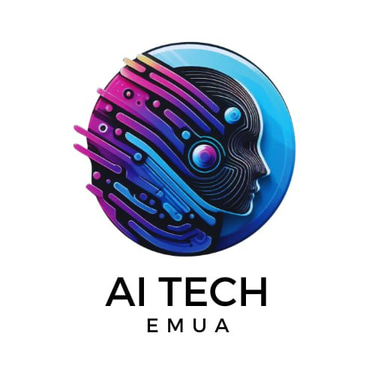How to Crack Interviews Using AI
Discover how AI can help you crack job interviews by optimizing resumes, practicing with mock interviews, analyzing company insights, and improving technical and soft skills. From predicting questions to refining communication, AI tools provide a smart, strategic approach to interview success.
AI EARNINGS
AI Tech
9/8/20243 min read


Cracking interviews using AI has become an innovative and effective approach to preparing for and succeeding in job interviews. AI tools can help you practice responses, analyze your performance, and give you insights into the company and role. Here are some strategies to leverage AI for acing your interviews:
1. AI-Powered Resume Optimization
Tailor Your Resume with AI: Tools like Resumatch and Jobscan use AI to analyze job descriptions and suggest improvements to your resume by aligning it with keywords and skills the recruiter is looking for.
ATS Compatibility: Many companies use Applicant Tracking Systems (ATS) to filter resumes. AI tools optimize your resume for ATS by formatting and structuring it in a way that increases its chances of passing initial screenings.
Benefits:
Increases the likelihood of your resume being seen by human recruiters.
Aligns your skills and experiences with job requirements effectively.
2. Interview Practice with AI
AI Mock Interviews: Tools like Interviewing.io and Pramp offer AI-powered mock interviews that simulate real-world interview scenarios, including technical and behavioral questions.
AI Feedback: Platforms like Big Interview and Yoodli provide feedback on your tone, clarity, body language (via video), and the structure of your answers. Some tools even offer tips to improve how you answer commonly asked questions like "Tell me about yourself."
Benefits:
Gain confidence by practicing in a real-time, simulated environment.
Receive personalized feedback to improve your interview performance.
3. AI-Driven Company and Role Research
Automated Research Tools: AI tools such as Crystalknows can analyze company culture, values, and work styles by scraping the web and providing insights into the organization. Similarly, platforms like LinkedIn Insights offer AI-generated information about the company’s growth, workforce trends, and team structures.
Role-Specific Insights: AI can also help analyze job descriptions, extracting the most critical qualifications and frequently mentioned skills required for the role. Tools like Textio can break down job listings and help you focus on the key points.
Benefits:
Helps you tailor your responses to fit the company’s culture.
Equips you with valuable information that you can use to ask intelligent questions during the interview.
4. AI-Based Behavioral Analysis
Personality Fit: AI-driven platforms like HireVue analyze your video responses to assess behavioral traits such as confidence, empathy, and communication skills. This analysis can help you improve your demeanor and overall presentation.
Psychometric Testing: Many companies use AI-powered psychometric assessments to gauge how well candidates will fit into the role. Tools like Pymetrics let you practice these assessments, giving you a chance to understand what the employer is looking for.
Benefits:
Helps you match the behavioral traits that companies value.
Enables you to practice answering questions in a way that highlights both technical and interpersonal skills.
5. AI for Coding and Technical Interviews
Coding Practice: For technical interviews, platforms like LeetCode, HackerRank, and CodeSignal provide AI-generated coding challenges to help you practice. They offer immediate feedback on solutions, time complexity, and coding efficiency.
AI-Powered Solutions: Tools like Codility analyze your coding skills and provide insights into how well you understand algorithms, data structures, and programming logic. These platforms often simulate real coding environments used in interviews.
Benefits:
Enhances your coding efficiency by practicing commonly asked technical questions.
AI feedback helps you improve code quality and problem-solving speed.
6. AI-Driven Soft Skills Training
Communication & Soft Skills: AI tools like Orai and Grammarly focus on improving your communication skills, both written and spoken. Orai can assess your verbal responses, highlighting areas like pace, tone, and fillers.
Presentation and Public Speaking: Tools like Speeko use AI to analyze your public speaking skills, providing feedback on your voice modulation and overall confidence. This can be useful for roles where presentation skills are critical.
Benefits:
Helps refine soft skills such as communication, which are increasingly valued in interviews.
Improves confidence and delivery during the interview.
7. AI-Assisted Interview Question Prediction
Job Description Analysis: Tools like VMock and Glassdoor Insights use AI to predict interview questions based on the job description and the company’s previous interviews. They can give you a list of questions that are likely to be asked based on the role.
AI-Powered Q&A Repositories: Websites like Glassdoor and Indeed use AI to gather and analyze common interview questions for various companies, providing insight into the types of questions that have been asked for specific roles.
Benefits:
Helps you prepare for the exact questions you’re likely to face.
Reduces stress by providing a focused preparation strategy.
8. AI for Post-Interview Follow-Up
Follow-Up Email Crafting: AI writing assistants like ChatGPT or Jasper can help you craft professional and personalized follow-up emails after the interview. These tools ensure your emails are concise, polite, and reinforce your interest in the role.
Analyzing Interview Performance: Some platforms can help you reflect on your interview performance by analyzing feedback and identifying areas where you can improve for the next round.
Benefits:
Leaves a positive impression with well-crafted follow-up communication.
Provides data-driven insights for continual improvement in future interviews.
By leveraging AI tools, candidates can enhance their preparation, improve their communication skills, and increase their chances of success. AI empowers you to anticipate challenges and address them in a structured way, making the interview process more manageable and efficient.
Inspire
Learn how to make money with AI technologies
contact us
Harness
© 2025. All rights reserved.
